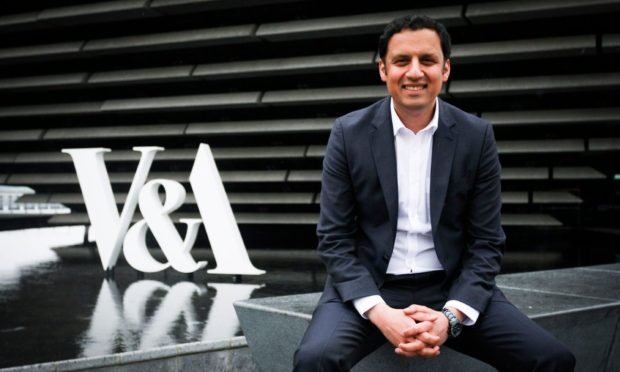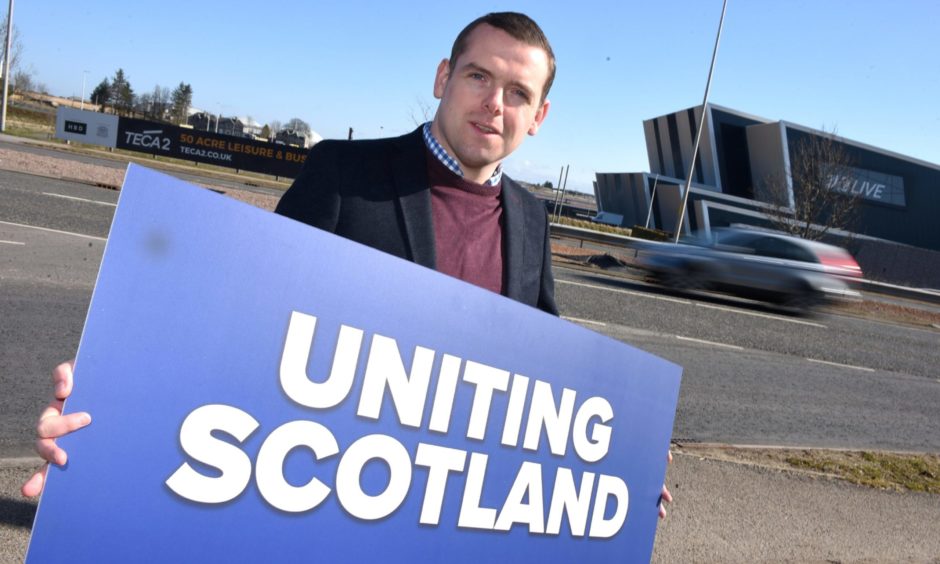One of my favourite Twitter accounts is called Nihilists for Independence.
It is reliably and entertainingly bleak, issuing tweets in support of an independent Scotland that end with: “Of course, it doesn’t matter. Nothing matters.”
I even have a mug, with the NfI logo on one side and the legend “YOON TEARS” on the other. This isn’t a statement of my political allegiance, it simply tickles me. There’s also something satisfyingly Scottish about the dubiety of campaigning passionately for a cause while a part of you sits at a remove, cracking cynical jokes about it.
Nothing matters – you could forgive Douglas Ross and Anas Sarwar for entertaining similar thoughts as Thursday approaches. Both have knocked their pan in for the past month or so in an attempt to make up ground on the all-conquering SNP. Yet they, and we, have always known the Nats will win this election at a canter. The Scottish Conservative and Labour Party leaders have instead been left to tear lumps out of one another in the scrap for second place – hardly what anyone goes into politics for, but all that is currently available to them.
Another week of hurtling through space on a giant ball for no reason whatsoever.
— Nihilists For Independence (@Nihilists4Indy) March 29, 2021
If this election has offered us anything, it has been the chance to take the mettle of Ross and Sarwar. Both are relatively new to leadership and to the electorate, are following in the footsteps of a series of predecessors who failed in the end to land a glove on the Nationalist hegemony, and will play frontline roles in any forthcoming independence referendum. This election is our chance to judge: are they up to it? And, if so, which do we prefer?
What are Douglas Ross’s policies for post-pandemic recovery?
I confess I’ve been disappointed with Ross. I met and interviewed him before the election campaign and found him smart, funny, realistic and measured. There was something attractively little-boyish about the fact he had a big photo of himself with Lionel Messi on his wall. I too would have a big photo of me with Messi on my wall if I had ever been lucky enough to meet the great man.
I knew, though, that Nicola Sturgeon didn’t think much of him (Ross, not Messi). I’d been told that in Covid-related private meetings of the party leaders he’d been unpleasantly aggressive – “like he was having to work very hard to keep his temper in check”. And I fear we’ve seen too much of that side of him during this campaign, angrily hectoring against an independence referendum while refusing to give anyone the space to talk about anything else.
A recent Tory leaflet through my letterbox mentioned not a single policy beyond stopping a referendum. While this strategy played well enough for Ruth Davidson, and will still work for Unionist obsessives, Thursday (May 6) may show us a degree of voter fatigue with such a one-note approach. After all, in the current climate it verges on patronising. Where are your policies for post-pandemic economic and educational recovery? And if you have them, why aren’t you talking about them?
Sarwar has got a lot of ability
Interviewing Sturgeon last week for Reform Scotland, I asked her about Anas Sarwar, expecting her to lay into the Scottish Labour leader. To my surprise, she did the opposite. “I’ll admit to the thing that traditionally, by common standards in politics, you’re not meant to,” she told me. “I like Anas and I know and have known [him] for some time. I think he’s very capable. I think the sitting on the fence and just pretending: ‘I’m above the fray’ will only work for so long. But I think he’s got a lot of ability.”
That fence-sitting accusation relates to Sarwar’s refusal to play along with the Tory-SNP script. Both of those parties have benefitted from the debate’s endless focus on the constitution, with the Nats winning pro-independence votes and the Conservatives scooping up the antis. Labour, a broadly Unionist party which has lost a decent whack of its support to the independence cause, has struggled to find relevance. Still, Sarwar has insisted on talking about the economy, mental health, education and healthcare for the past month. Good on him.
He has undoubtedly had a good campaign. He did well in the televised leader’s debates, where his refusal to be dragged into a constitutional punching match came across as a strength rather than a weakness. Where Ross seems to have hidden away his true personality and become robo-pol for the duration, Sarwar has allowed his humanity to show. The polls, as the election draws near, suggest this might be enough to put Labour back into opposition, and deservedly so.
Still, as my friends at Nihilists for Independence would put it, it doesn’t matter. Sturgeon will be First Minister and the battle for independence will continue unabated. Yoon tears, indeed.
Chris Deerin is a leading journalist and commentator who heads independent, non-party think tank Reform Scotland


